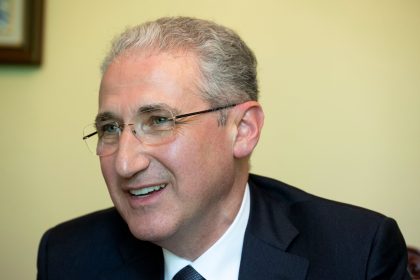Climate Questions: What Are the Solutions to Climate Change?

As the world warms and extreme weather events mount, governments and corporations have been called on to address climate change by top officials, climate scientists and activists and to curb levels of heating.
The planet’s temperature has already risen by about 1.1 degrees Celsius (2 degrees Fahrenheit) and the effects will only get worse with every additional tenth of a degree of warming, scientists warn.
Scientists and officials agree that it’s important to not make matters worse by burning even more fossil fuels — coal, oil and natural gas — that emit heat-trapping gases into the air. In a 2021 report, the International Energy Agency said there can be no new investments in fossil fuels if the world wants to reach its climate goals. The most recent report by the Intergovernmental Panel for Climate Change said “immediate and deep” cuts to dirty fuels were needed.
“Our addiction to fossil fuels is pushing humanity to the brink,” said U.N. Secretary-General Antonio Guterres at the 2021 climate conference in Glasgow, known as COP26.
The world is currently reliant on fossil fuels for much of its electricity, heating and transportation, as well as agriculture and industry. It’s hoped that cleaner alternatives — such as solar and wind energy — will replace much of that demand. As costs of renewables plummet, more and more energy is being produced in sustainable ways, although the total amount of energy produced globally has also gone up.
“There’s been quite a rapid uptake of renewables, but emissions are continuing to rise,” said Elizabeth Robinson, the Grantham Research Institute on Climate Change and the Environment’s director. “We also need to see overall global emissions falling, and at the moment global emissions from fossil fuels are still increasing.”
While renewable energy sources work well for electricity production, other industries — such as cement-making, steel and shipping — will be harder to wean off dirty fuels. That’s why experts are looking into technologies that may be able to help these specific sectors, as well as the possibility of “green fuels,” such as those made out of plant materials or natural waste, known as biofuels.
Newer technologies like green hydrogen, which uses renewable energy sources to make hydrogen to use for energy, and carbon capture, which sucks carbon dioxide out of the air, are also being explored but still come with a heavy price tag and are untested on a large scale.
Methane, a greenhouse gas that is about 25 times more effective at trapping heat than carbon dioxide but only lasts in the atmosphere for about a dozen years, will also have to be greatly reduced. Countries have vowed to plug methane leaks from oil wells and gas pipelines which would have immediate benefits for curbing warming, scientists say.
Robinson also pointed to stopping deforestation and tweaking diets as solutions since forests naturally absorb carbon dioxide from the atmosphere. Using land for agriculture, especially for livestock which also requires vast amounts of land for grazing, means forests need to be cleared and more greenhouse gases are emitted into the air.
“This is a very controversial area, but in most higher income countries, most people eat far more meat than they need to,” Robinson said.
In addition to limiting climate change, humans will also need to learn how to live with some warming. Looking at how to rein in warming while simultaneously learning to acclimate is known as “mitigation and adaptation” in climate circles. Many officials and scientists say both are needed.
“We’ve got to do everything,” said Robinson. “It’s too late to say one thing’s better than the other.”
___
EDITOR’S NOTE: This story is part of an ongoing series answering some of the most fundamental questions around climate change, the science behind it, the effects of a warming planet and how the world is addressing it.
Associated Press climate and environmental coverage receives support from several private foundations. See more about AP’s climate initiative here. The AP is solely responsible for all content.
























